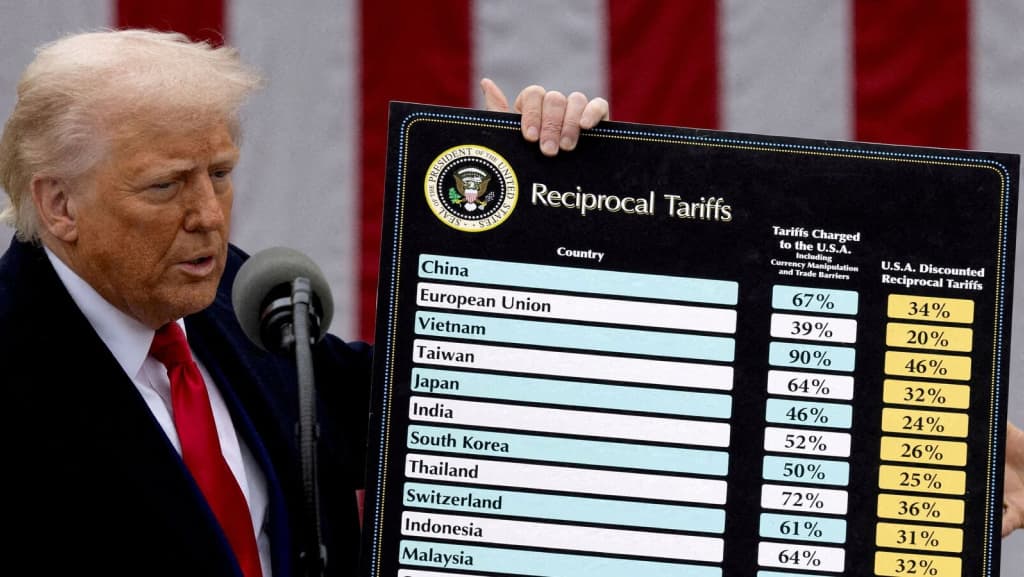
Does Trump Have Legal Authority to Push his Tariffs Through? Not Really
The legal battle questioning Trump's authority to impose tariffs will likely continue for his term.
Donald Trump continues to rattle the world economy with unilateral tariffs and tariff threats. This includes Wednesday's executive order imposing an additional ad valorem rate of duty of 25 per cent on India for buying Russian oil. Globally, businesses and policymakers are watching with great concern at the possible consequences. But does the president even have the constitutional authority to impose these tariffs? Apparently, not.
“Just about everything Trump has been doing on trade is illegal,” writes Paul Krugman in his August 1 Substack column, 'Trump/Brazil: Delusions of Grandeur Go South'. Krugman isn't alone. In the US, a dozen state governments, several businesses and individuals have sued the Trump regime for using executive orders to slap tariffs, overstepping the legislative process. This overuse of presidential authority, they argue, has caused immense harm to American businesses and economy. Their plea to US Court of Appeals for the Federal Circuit: pronounce Trump tariffs illegal and stop government agencies and officials from enforcing them.
During hearings, federal appeals court judges have expressed scepticism on the president's authority to impose tariffs, and called it an unprecedented use of emergency powers. Strange as it may sound, International Emergency Economic Powers Act (IEEPA) of 1977, the law that Trump has used to justify his sweeping tariffs, does not mention the word 'tariff'.
The Trump regime says that the country is under 'an unusual and extraordinary threat', arising from trade deficits and drug trafficking, and this threat validates the use of IEEPA. The plaintiffs, in turn, have called these threats bogus. They argue that the US economy has been dealing with trade deficits for decades, and yet has continued to prosper. They add that there is little evidence of drug trafficking from most countries that are subject to Trump tariffs.
In some cases, it's just Trump's personal vendetta against certain world leaders that is the cause of high tariffs. For instance, Trump has imposed a 50 per cent tariff on Brazil, citing the trial of former president Jair Bolsonaro, a former Trump ally, an emergency. Critics claim this is a blatant misuse of the US presidential powers and interference in the governance of another country.
The US Constitution grants the president authority to impose tariffs in three exceptional circumstances. None of them holds true in the current case:
Security Reasons: In his first term, Trump had imposed tariffs on steel and aluminium, and then raised them further in his second term, using the excuse of national security. But legal experts say that since there is no imminent threat to American security, use of tariffs to address a bogus threat is baloney.
Unfair Trade: There is no evidence that the world is dumping its produce in the US at less than market prices. So, this is not a valid justification for sweeping duties across countries. Anti-dumping duties would require evidence of dumping against specific countries and specific goods.
Economic Emergency: Trump has bragged many times that the US economy during his presidency is the greatest, ever. Surely, it can't be the 'greatest economy ever' and be in an emergency at the same time.
Earlier, in May, US Court of International Trade, based in NYC, ruled that the Trump regime had exceeded the authority granted by Congress to the president and ordered blocking enforcement of Trump tariffs. But the regime appealed that ruling in the federal circuit, which allowed the government to continue enforcing tariffs while the case proceeded.
The legal battle questioning Trump's authority to impose tariffs will likely continue for his term. It will probably come before the Supreme Court. While it has a majority of conservative judges, the court may not necessarily rule in Trump's favour, as most conservative judges are constitutionalists. Therefore, they'll be unlikely to pass a judgment that clips the Congress' authority and grants unprecedented powers to The president of the United States ( POTUS).
Trump can seek Congress' legislative approval. But the process is time-consuming, and it's not clear that even Republican legislators will give him the authority, given his haphazard and reckless ways. Republican support for Trump tariffs may decline once the latter's adverse effects on the US economy become more visible.
So, what should Government of India do as it faces threats of tariffs and penalties? At the start of Trump 2.0, pundits suggested that New Delhi avoid getting into a trade war with the US. That advice is still valid. GoI has conveyed that it won't allow Trump to dictate its foreign policy, or be bullied into deciding who it should buy crude oil from.
It's in India's economic interest to keep buying crude from Russia. If Russian oil is pushed out of the global market -- as Trump intends by pressuring countries to stop imports -- prices could rise above $100 a barrel, sharply increasing India's import bill. Meanwhile, GoI should use the opportunity that Trump's tariff threats present to lower tariffs to improve India's competitiveness with the world at large.
For any enquiries please fill out this form, or contact info@thelawreporters.com Follow The Law Reporters on WhatsApp Channels